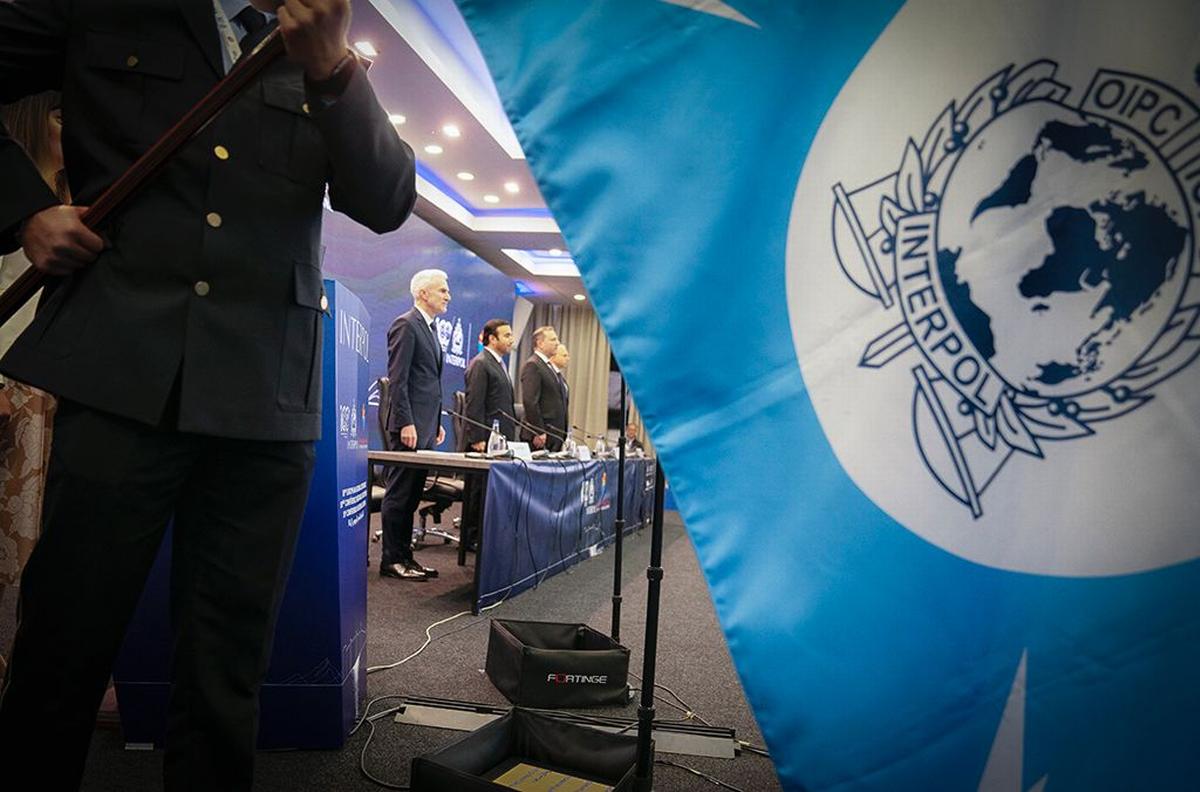
Milano-Cortina. Ecco come verranno spesi i 450 milioni di euro delle paralimpiadi



23 aprile 2024
Artificial intelligence (AI) will facilitate cybercrimes, including those perpetrated by organized crime. This warning comes from Enrique Hernandez Gonzalez, head of cyber operations at Interpol, the international law enforcement organization coordinating efforts across 196 countries. Speaking in an interview conducted by lavialibera for the World Police Summit in Dubai, Gonzalez emphasized that while encrypted phones are currently one of the main challenges, AI poses the greatest concern for the future.
The Italian anti-mafia association Libera sheds light on crime in ports
"We're merely scratching the surface of AI's capabilities," Gonzalez warns, underling the technology's potential to reshape the cybercrime landscape as it becomes more accessible and reliable. “Its full potential is still untapped but artificial intelligence will be the primary challenge in the years ahead."
Jürgen Stock, Interpol's Secretary General, echoed these concerns on March 11 presenting the organization's latest global analysis on financial fraud. "High-tech advancements and the increasing scale of organized crime have led to new fraudulent techniques targeting individuals, companies, and governments," Stock explained. One of the latest tactics is "pig butchering," which exploits human trafficking networks and establish trust with victims before extracting significant sums of money from them. Interpol’s report emphasized that these challenges will intensify with the evolution of AI and cryptocurrencies.
Italian intelligence shares the same fear. Reporting to the country's parliament on February 28, pointed to the growing necessity to confront cyber and hybrid threats, including disinformation campaigns, and the misuse of advanced technologies like AI for malicious purposes. “Modern technologies and cyberspace have a pivotal role in safeguarding national interests and state security," stated.
"In recent years, we've observed a growing nexus between traditional organized crime and cybercrime. Criminal enterprises recognize the Internet's facilitative role in various illicit activities, including conventional ones like drug trafficking"
Gonzalez, what cyber threats have grown and why over the past five years?
There has been a significant surge in cybercrime globally, primarily driven by the pandemic. The lockdown measures have altered our lifestyle habits, leading to an increase in online activity. With remote work becoming the norm, individuals are now more exposed to cyber risks, providing malicious actors with new opportunities for exploitation. We've observed a rise in complex cybercrimes, such as ransomware attacks (malicious software that encrypts data, requiring a ransom to restore and not publish them, ed.), which inflict substantial harm on victims and pose challenges for law enforcement. Meanwhile, less sophisticated threats (like email scams) have remained steady. This complexity escalation can be attributed to the increased accessibility of certain technologies, making cyber skills less of a prerequisite.
Is there one country, in particular, that plays a prominent role?
Our latest findings indicate that cybercrime is perceived as a top-three threat across all regions. However, Africa has experienced a disproportionate increase in cybercrime, partly because of the challenges in effectively addressing the issue. Consequently, we've intensified our efforts in the area, forging closer partnerships with local law enforcement agencies. These efforts have yielded positive outcomes, as evidenced by a recent multinational operation resulting in 103 arrests and the seizure of $2.19 million, along with over 200 bank accounts linked primarily to the Nigerian criminal organization Black Axe. These accounts were utilized for laundering proceeds from illicit activities.
What is the relationship between traditional organized crime and cybercrime?
In recent years, we've observed a growing nexus between traditional organized crime and cybercrime. Criminal enterprises recognize the Internet's facilitative role in various illicit activities, including conventional ones like drug trafficking. While not all criminal networks possess in-house cyber expertise, the emergence of a cybercrime-as-a-service model is notable. Under this model, cyber gangs offer specialized services, such as money laundering via cryptocurrencies or distributed denial of service attacks, for a fee. Albeit engaged in illegal activities, these entities operate like legitimate businesses, including hierarchical structures, administrative roles, and recruitment strategies. Notably concerning is the "money mules" phenomenon - individuals unwittingly involved in criminal operations by providing their identities to establish financial accounts for receiving illicit funds. Therefore, it is more difficult to trace the money. Sometimes, these individuals aren’t aware of being involved in a crime but have been lured by false job advertisements online. For instance, the organization behind Grandoreiro, a significant cyber threat in Spanish-speaking regions, orchestrates elaborate schemes targeting victims through phishing emails. Our investigation on Grandoreiro are still ongoing. However, we were able to reconstruct its network. It has a strong hierarchical structure spanning from Spain, where the “mules” are from, to Brazil, the country of the criminals at the top of the pyramid.
Will cybercrime-as-a-service remain the predominant model in the future?
Cyber gangs have recognized that joining traditional criminal organizations is less lucrative and more risky. Consequently, they opt to offer their services to the highest bidder, a trend likely to persist.
Is there a particular technology that concerns you for the future?
Artificial intelligence (AI) will revolutionize cybercrime, facilitating various malicious activities. For instance, AI can automate phishing campaigns that aim to steal users' personal information. Moreover, advancements in AI could enable the creation of convincingly fake audio and video content, making impersonation increasingly plausible. This blurring of reality poses challenges in distinguishing genuine from fabricated content. Furthermore, AI empowers criminal organizations to develop sophisticated malicious software autonomously, lowering further the barriers to cybercrime.
"Cyber gangs have recognized that joining traditional criminal organizations is less lucrative and more risky. Consequently, they opt to offer their services to the highest bidder, a trend likely to persist"
As highlighted by several investigations conducted by lavialibera, encrypted phones are one of the technologies widely used by organized crime. Are they truly a significant issue?
Encrypted phones present a substantial challenge for law enforcement agencies. Seizing these devices often proves fruitless in retrieving crucial information, complicating investigations. Many member states seek assistance from Interpol in decrypting such devices, but their obscurity remains a significant obstacle.
What other hurdles do law enforcement agencies encounter in combatting cybercrime?
A major obstacle lies in disparate legislation across jurisdictions, hindering effective cooperation between countries. While Interpol strives to foster police collaboration, lacking standardized regulation impedes the exchange of judicial evidence. Addressing this issue requires establishing common legal frameworks and efficient technological channels for information sharing, a matter currently under discussion within the United Nations.
Lastly, Interpol collaborates with Kaspersky, a Russian cybersecurity company, that has been banned from our public administration fearing political interference. Is there a risk?
I can only speak in the name of Interpol. Interpol maintains an agreement with Kaspersky for intelligence sharing and training initiatives among member countries. This partnership adheres to clear guidelines and standards, ensuring the security of all Interpol member states.
Translated and edited by Rosita Rijtano
La tua donazione ci servirà a mantenere il sito accessibile a tutti
La tua donazione ci servirà a mantenere il sito accessibile a tutti